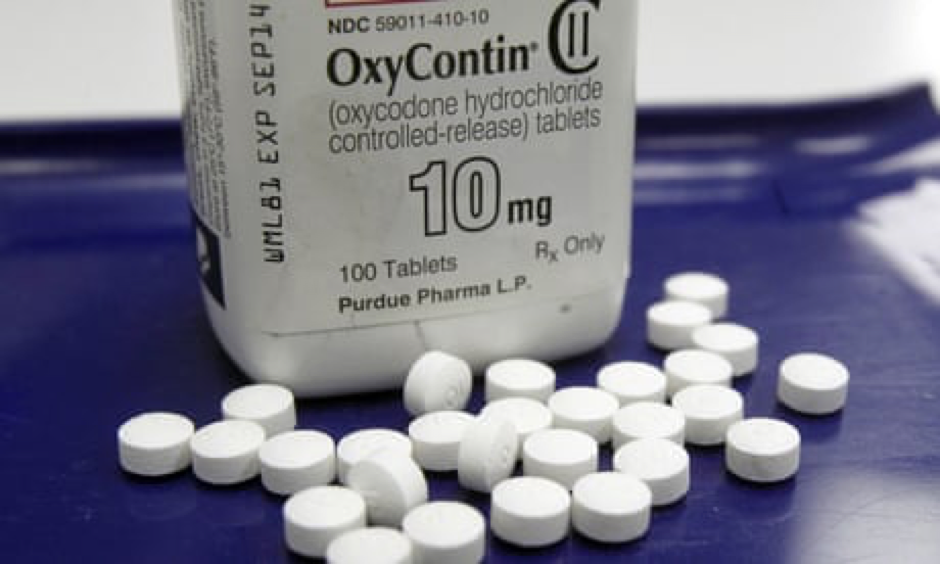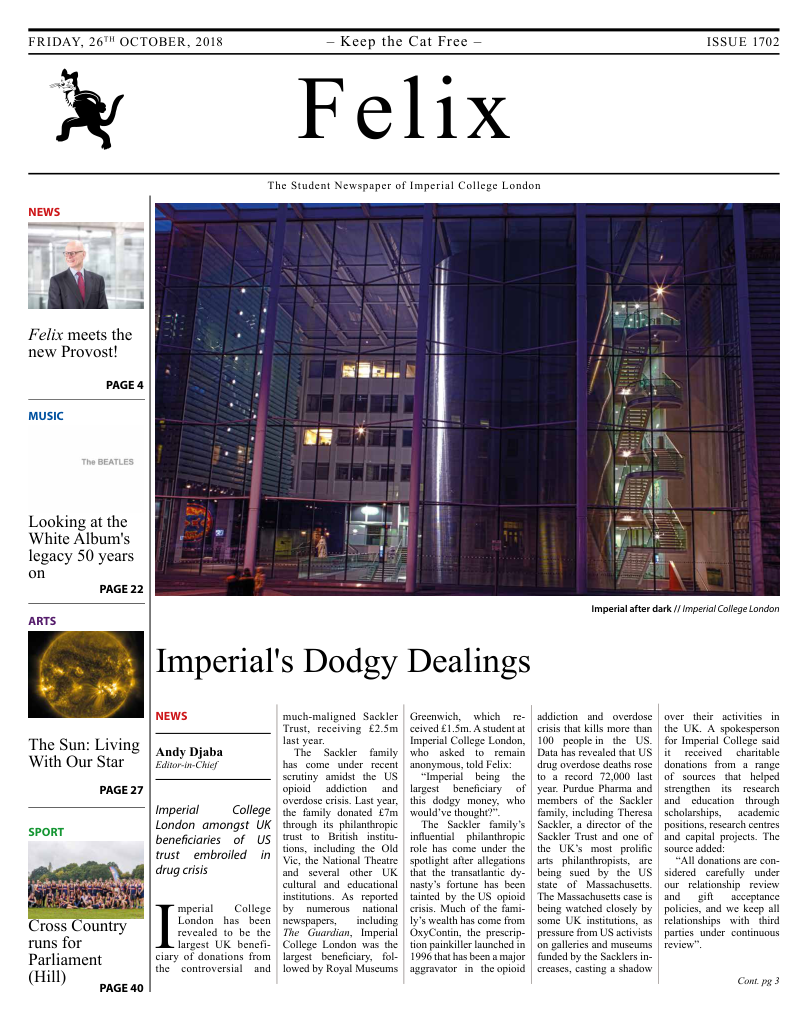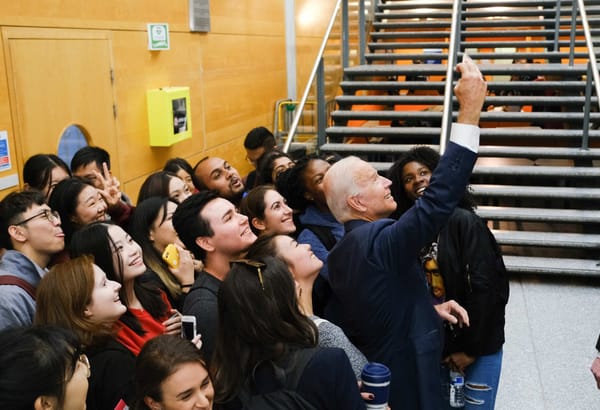Imperial's Dodgy Dealings
Imperial College London amongst UK beneficiaries of US trust embroiled in drug crisis

Imperial College London has been revealed to be the largest UK beneficiary of donations from the controversial and much-maligned Sackler Trust, receiving £2.5m last year.
The Sackler family has come under recent scrutiny amidst the US opioid addiction and overdose crisis. Last year, the family donated £7m through its philanthropic trust to British institutions, including the Old Vic, the National Theatre and several other UK cultural and educational institutions. As reported by numerous national newspapers, including The Guardian, Imperial College London was the largest beneficiary, followed by Royal Museums Greenwich, which received £1.5m. A student at Imperial College London, who asked to remain anonymous, told Felix:
“Imperial being the largest beneficiary of this dodgy money, who would’ve thought?”.
The Sackler family’s influential philanthropic role has come under the spotlight after allegations that the transatlantic dynasty’s fortune has been tainted by the US opioid crisis. Much of the family’s wealth has come from OxyContin, the prescription painkiller launched in 1996 that has been a major aggravator in the opioid addiction and overdose crisis that kills more than 100 people a day in the US. Data has revealed that US drug overdose deaths rose to a record 72,000 last year. Purdue Pharma and members of the Sackler family, including Theresa Sackler, a director of the Sackler Trust and one of the UK’s most prolific arts philanthropists, are being sued by the US state of Massachusetts. The Massachusetts case is being watched closely by some UK institutions, as pressure from US activists on galleries and museums funded by the Sacklers increases, casting a shadow over their activities in the UK. A spokesperson for Imperial College said it received charitable donations from a range of sources that helped strengthen its research and education through scholarships, academic positions, research centres and capital projects. The source added:
“All donations are considered carefully under our relationship review and gift acceptance policies, and we keep all relationships with third parties under continuous review”.
Accounts filed this month by the Sackler Trust show 12 entities received grants last year of more than £150,000, along with 53 miscellaneous donations of less than that figure. Beneficiaries included the Royal Court’s resident company, the English Stage Company (£700,000), Alexandra Park and Palace Charitable Trust (£500,000), the Old Vic (£300,000), the National Theatre (£250,000) and the Roundhouse arts and concert venue (£225,000). While it is unclear if negative publicity had been a factor, the Sackler Trust’s grants last year have dwindled in comparison to the £21m given in 2016.
Among the most active critics of the Sacklers and Purdue Pharma has been the artist Nan Goldin, who recently recovered from a near-fatal addiction to OxyContin and has staged direct actions inside US arts institutions funded by the family. Nan provided comment, saying: “One of our goals is to try to force the hand of the museums and other institutions to refuse future funding.”
Ryan Hampton, a US campaigner who is in recovery from a decade-long opioid addiction, said that the only acceptable philanthropy for the Sacklers to pursue was in “supporting resources and finances that will end the opioid crisis that poured billions into Purdue Pharma”. He added: “The Sacklers are the direct beneficiaries of the vast and profound suffering created by purposefully misleading doctors about their company’s products. Co-opting our cultural institutions is reputation-laundering and it’s a distraction.”

The Sackler family members being sued in the case include Theresa and Beverly, the widows of the brothers, Mortimer and Raymond Sackler, who grew Purdue Pharma into a pharmaceutical empire. Forbes magazine estimates that a core group of 20 family members in the Mortimer and Raymond Sackler branches of the family are collectively worth $13bn (£10bn).
This news comes in a week that saw the ongoing campaign against Imperial’s investments in oil and gas companies by Divest Imperial, an Imperial College Union-affiliated environmental campaign group, intensify following the university’s involvement in GB Green Week, as reported by Felix. Last year, Felix revealed that analysis of Imperial’s investments showed significant holdings in pharmaceuticals, tobacco, arms and oil and gas companies.









